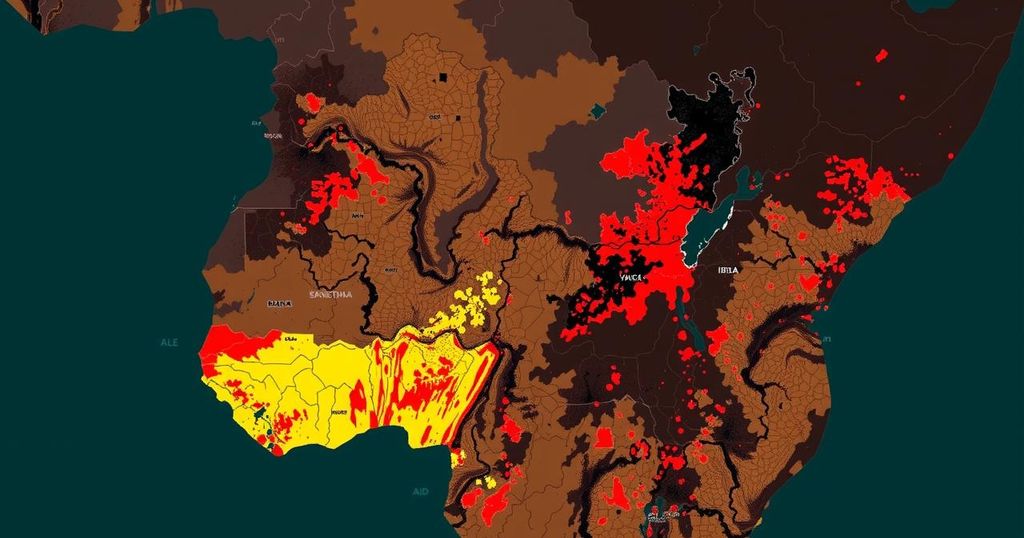Mozambique’s recent protests following disputed election results have incited severe unrest, with at least 30 fatalities reported. The turmoil poses risks to regional stability and trade, prompting concerns among Southern African nations, particularly as South Africa closed its border with Mozambique due to the violence. Ongoing electoral irregularities and historical contexts further complicate the situation, necessitating regional intervention and support for democratic processes.
In recent weeks, Mozambique has been engulfed in protests following the controversial outcome of the October 9 elections, wherein the ruling Frelimo party’s candidate, Daniel Chapo, was declared the victor. The unrest has led to tragic fatalities, with reports indicating casualties surpassing thirty individuals. These developments have raised significant concerns for the Southern African region, as the Southern African Development Community is poised to address these matters in its upcoming summit. Opposition leader Venancio Mondlane, who secured 20% of the vote, has been vocal in contesting the results and calling for nationwide demonstrations. The political landscape in Southern Africa varies greatly, with countries like South Africa and Botswana recently exemplifying the conduct of free and fair elections. The recent democratic transitions in these nations underline the need for Mozambique to establish stable electoral processes. International observers from the European Union cited numerous irregularities during Mozambique’s elections, including the manipulation of results, pointing to systemic issues within the electoral commission. This situation echoes similar challenges faced in Zimbabwe where elections have also been marred by allegations of misconduct. From an economic perspective, Mozambique plays a crucial role in regional trade, sharing borders with several countries. The escalating violence has prompted South Africa to temporarily close its border with Mozambique, disrupting vital trade routes. The closure has incurred significant economic losses, estimated at R10 million ($555,177) daily. Given that Mozambique possesses rich mineral resources, its stability directly impacts the regional economy, particularly since South Africa relies heavily on the Maputo harbor for its exports. Mozambique’s historical context is vital in understanding the current unrest. The nation is still reeling from the aftermath of a devastating civil war, with lingering tensions between the ruling party and former rebels. The added threat of militant activity linked to the Islamic State in the northern Cabo Delgado province has further complicated the nation’s efforts toward stability. As regional neighbors share substantial demographics with Mozambique, any escalation in turmoil could lead to increased migration.
The recent post-election violence in Mozambique is a profound concern for Southern Africa due to the potential for instability to affect neighboring countries significantly. Historical electoral issues and the country’s fragile political landscape, exacerbated by a history of civil strife, create a volatile environment. With Mozambique as a key player in regional trade and economic activities, unrest jeopardizes not only its stability but also that of its neighbors, particularly in light of previous patterns of migration and economic intertwining within Southern Africa.
The post-election violence in Mozambique raises alarm bells for the Southern African region, highlighting the urgent need for credible electoral processes and political stability. Disputed elections reflect governmental instabilities that can have far-reaching implications for regional trade and security. As the Southern African Development Community convenes to address these issues, the focus must remain on fostering democratic integrity and ensuring peaceful political engagement throughout the region.
Original Source: apnews.com







